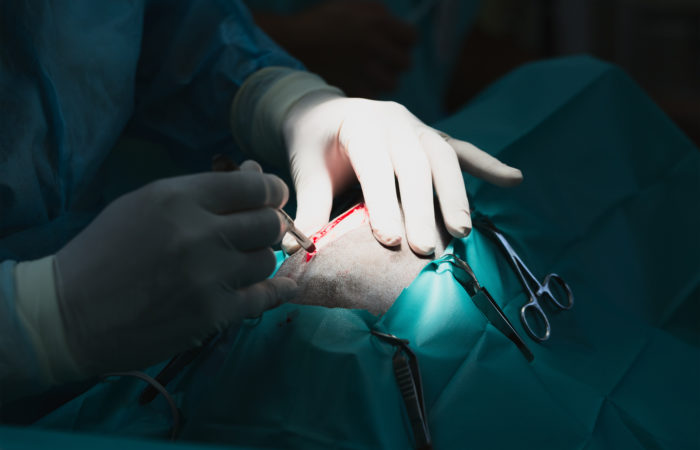Emergency Surgery Essentials for Veterinary Surgeons
This veterinary thought exchange online tutored course takes a more detailed look at the soft tissue surgical approaches to commonly presented emergencies in dogs and cats.
Emergency surgeries can be a challenge because you can’t plan for them and gaining enough experience to perform them confidently depends entirely on whether you’ve been presented with the condition before in adequate numbers. This course aims to review the approach to some emergency presentations, take steps to stabilise the patient (if possible) for anaesthesia and make sensible decisions on whether surgery is appropriate. Tips and tricks for surgical procedures for haemabdomen, foreign body obstructions (including enterectomy / anastomosis ), gastric dilation and volvulus, and urinary obstruction / uroabdomen will be reviewed. And what about if you don’t find what you expected?
The course is run by Jon Hall (EBVS and RCVS Recognised Specialist in Small Animal Surgery). It runs over a eight-week period and takes around 10 hours to complete. The course is delivered via video webinars and supplemented with discussion forums with the course tutor, giving you the opportunity to ask questions or discuss cases you may be facing in your practice.
Access to this course is for 12 months from the start of the course going live on our website. The discussion forum will be monitored for the course duration only.
Course Content
- Review the differences between traumatic and spontaneous haemabdomen.
- Consider the causes and prognoses for haemabdomen in different sized dogs.
- Improve decision making for stabilisation and timing of surgery for spontaneous haemabdomen.
- Understand the anatomy of the splenic blood supply to make surgery more efficient.
- Learn techniques that can help with major haemorrhage.
- Review the current risk factors and advice to help avoid GDV.
- Consider recent alternative options for emergency stabilisation.
- Review the surgery for GDV and understand key features of the procedures.
- Recognise when prophylactic gastropexy might be valuable.
- Review abdominal anatomy in a systematic and complete manner.
- Consider what to do to make the most of a ‘negative exlap’.
- Learn how to increase the exposure and access in exploratory coeliotomy.
- Remember the duodenal and colonic manoeuvres.
- Apply core principles learned in your everyday abdominal surgeries.
- Review the reasons that a surgeon may perform resection / anastomosis.
- Consider the decision making during the procedure and key elements of the surgery.
- Recognise that simple continuous anastomosis may provide some advantages over simple interrupted.
- Determine whether or when we should leak test, omentalise or patch intestine.
- Understand stapled resection / anastomosis.
- Recognise when swellings or wounds might represent occult foreign body, particularly with chronic sinus discharge.
- Devise investigation plans for stick injury and migrating foreign body.
- Decide on the most appropriate timing of surgical intervention.
- Choose the most appropriate method to retrieve.
- Consider when conservative management might be sensible initially.
- Recognise that bite injuries result in considerable occult trauma.
- Review principles to determine the depth of bite injuries.
- Discriminate between injuries that require surgical intervention and those that may not necessarily require open exploration.
- Learn strategies to manage open traumatic pneumothorax.
- Consider management of complex penetrating abdominal bite wounds.
- Understand and utilise appropriate imaging and clinical pathological tests to confirm uroabdomen.
- Discriminate traumatic uroabdomen from other abdominal effusions.
- Choose surgical options appropriate to the cause of uroabdomen.
- Recognise the options for surgical treatment of ureteral obstruction.
- Understand the initial medical management for ureteral obstruction and when surgery may be appropriate.
- Determine when tube cystostomy might be a useful procedure and understand how it is performed.
- Learn tips and tricks to increase the chance of relieving urethral obstruction in dogs and cats.
- Recognise the value and limitations of permanent urethrostomy.
- Understand the reasons why we perform different procedures in dogs and cats.
- Review tips to reduce the complications with permanent urethrostomy and surgical principles of the procedures.
Meet the speakers

Jon Hall
Surgery Specialist (Soft Tissue)
already purchased this course? login to your vtx account for access
login

